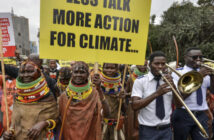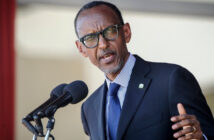The African continent is about to embark on an ambitious project with the launch on Wednesday of the African Continental Free Trade Area (AfCFTA) in Kigali, Rwanda. The AfCFTA will be the largest free trade area in the world and it is estimated to increase intra-African trade by 52 percent by 2022, compared with trade levels in 2010.
As lofty as this idea is, Nigeria has decided to opt out. This is to enable President Muhammadu Buhari to consult more with business leaders and trade unionists on the merits and otherwise of the AfCFTA.
Here is all you need to know about AfCFTA
African heads of government agreed to establish a continental free trade area in 2012 and started negotiations in 2015. The agreement is set to be signed by all 55 member states of the African Union, bringing together 1.2 billion people with a combined gross domestic product (GDP) of more than $2 trillion.
The draft agreement commits countries to removing tariffs on 90 percent of goods, with 10 percent of “sensitive items” to be phased in later.
The end goal is to have free movement of people and even a single currency in the continent just like the EU.
Intra-African trade is relatively limited, in 2010 only 10.2 percent of the continent’s total trade according to UNCTAD, the UN agency in charge of trade. David Luke, coordinator of the African Trade Policy Centre at UNECA, hopes the free trade area will correct this “historical anomaly”.
“Colonialism created a situation where neighbours stopped trading with each other. The main trading route was between African countries and European countries and between African countries and the US,” he told Al Jazeera.
Between 2010 and 2015, fuels represented more than half of Africa’s exports to non-African countries, while manufactured goods made up only 18 percent of exports to the rest of the world, a UNECA report said. Within Africa, 43 percent of goods traded are manufactured products.
AfCFTA will come into force after it has been ratified by either 15 or 22 countries – a number that has yet to be agreed on but will likely be reached.




